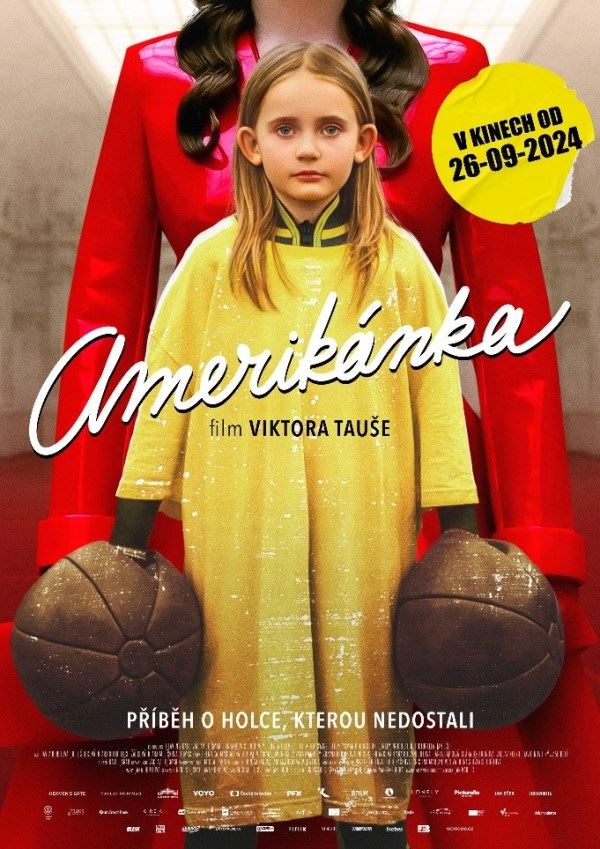so 28.9.202418:30
Add to calendar:
Amerikánka
You go back places. To the places where you grew up. You're shaking. You're sweating. You swallow. You can't avoid memories. Some are like colorful paintings. Some like punches. A child under the communists. Foster parents. Shepherd. And then velvet. And freedom you don't know how to handle. You've fallen a hundred times. But she rose again a hundred times. They didn't get you. You weren't alone. You had yourself. And hope too.
Blue Galaxy
12+
Original
110 minutes
2D
Czech Republic
View gallery
You go back places. To the places where you grew up. You're shaking. You're sweating. You swallow. You can't avoid memories. Some are like colorful paintings. Some like punches. A child under the communists. Foster parents. Shepherd. And then velvet. And freedom you don't know how to handle. You've fallen a hundred times. But she rose again a hundred times. They didn't get you. You weren't alone. You had yourself. And hope too. I hope you get to America one day. Where daddy is waiting for you
Yankee. A story about a girl who stopped running.
Director and producer Viktor Tauš comes with the movie experience of the year. The American woman tells her story in an unconventional stylized language that resembles a surreal geyser full of colors, life and dreams. Although there is not a single realistic scene in the film, the intense feeling of reality does not leave the viewer's mind even for a moment. Nothing is real, and yet absolutely everything you see on the screen is real. Story. Characters. Scars. Everything is authentic. Here, the children play real characters of abandoned children, and since they are mostly from children's homes themselves, they imbue the stories of their characters with their own destinies.
Viktor Tauš first staged the story of the American woman in the Jatka 78 theater, where over 100,000 spectators saw it. The epic film adaptation will be in theaters from May 30, 2024.
The American woman is also a girl whom Viktor Tauš met in the 1990s, when he himself lived on the street as a homeless person. "We were part of the first generation of victims of freedom. At that time, homeless people were primarily thousands of children who grew up alone, without parents, in socialist orphanages."
